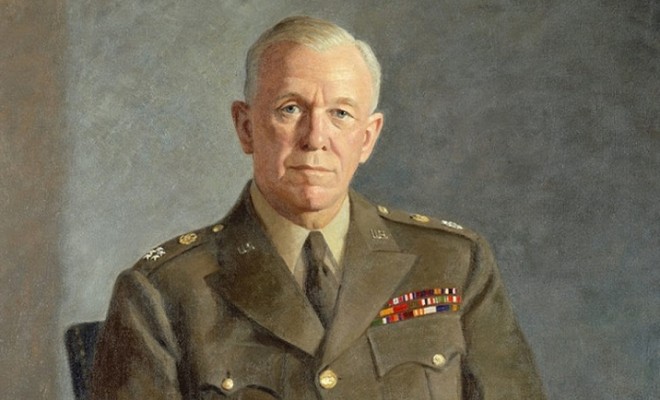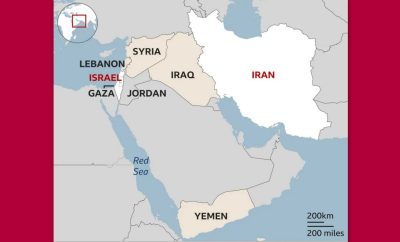
Rethinking the Marshall Plan
The Great War was not only a boon to George Catlett Marshall’s career, preparing the way for a long and close association with General John J. Pershing; the war and its aftermath also provided Marshall with valuable schooling in ethics and leadership. Over the 20 years that followed this cataclysm, the primary lesson he learned had to do with what to avoid: the post-bellum temptation to withdraw from international affairs, thereby contributing to a breakdown of peace and to the inception of another, even more horrific global conflict.
From his varied experiences in France between June 1917 and September 1919—planning troop movements, risking his career by defending others against the unfair criticism of higher-ups, working with allies, quartering in the homes of French farmers—Marshall gained a deeper sense of competence and responsibility in the profession of arms. This awareness of accomplishment and mastery joined a personal integrity manifest at least since his cadet days at the Virginia Military Institute. Over time, his clear impression of duty incorporated a commitment to discovering and implementing the conditions of a peace that would be not only lasting but also just and seeded with promise.
Although he was, to borrow Dean Acheson’s descriptive phrase, the “least militant of soldiers,” George Marshall believed—as he put it in his Nobel Peace Prize speech in December 1953—in a “very strong military posture,” which “is vitally necessary today.”[i] A massive defense buildup alone was not enough, however; nor would economic aid to war-damaged nations coupled with strategic alliances suffice. In his view, a renewed moral and spiritual commitment was also requisite.
When Marshall gave his Nobel Prize address, he was chairman of the American Battle Monuments Commission. In this role he supervised the construction and maintenance of military cemeteries overseas, particularly in Western Europe. As he noted in his speech in Oslo, Norway, “the cost of war in human lives is constantly spread before me, written neatly in many ledgers whose columns are gravestones.” Therefore, he affirmed, “I am deeply moved to find some means or method of avoiding another calamity of war. Almost daily I hear from the wives, or mothers, or families of the fallen. The tragedy of the aftermath [of war] is almost constantly before me.”[ii]
Συνέχεια ανάγνωσης εδώ
Πηγή: providencemag.com




